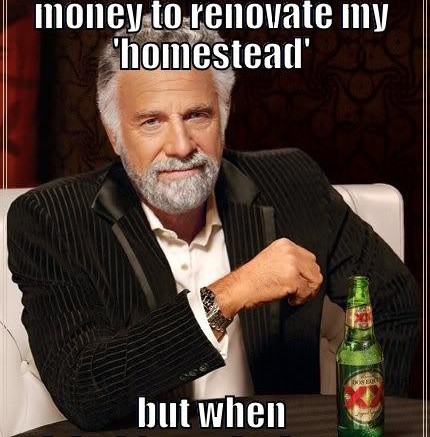This is a copy of an article written by Barbara Jones from the MailOnline and it makes interesting reading to anyone who still thinks that Africa’s problem are or were caused by the nasty Europeans colonising the place.
The costly upgrade to Zuma’s once-humble home in the village of Nkandla includes Astroturf sports fields and tennis courts, a gymnasium and state-of-the art security systems, including fingerprint-controlled access pads. And nearby roads have benefited from a further £40 million of improvements. When African journalists revealed the astronomical cost of the work, Zuma’s ministers turned on the whistle-blowers, saying that revealing the details of ‘top secret’ documents was illegal.
Originally the cost of the project, which began two years ago, was put at £500,000 – but it has since skyrocketed. South African taxpayers are footing most of the bill, although Zuma, a polygamist with four wives and at least 20 children, is said to be contributing £700,000 of his own money – a stretch on his annual £185,000 salary.
However, he also receives a controversial £1.2million in ‘spousal support’ for his wives – despite recently calling on fellow politicians to tighten their belts – and pays only a peppercorn rent of £560 on the tribally owned plot in the Zululand hills where his mansion sits.
Zuma has named his residence a ‘national key point’ – a status invented by the previous paranoid apartheid government – which means it is entitled to security measures ‘in the interests of the nation’.
Last week he was grilled in parliament about what he and his family were costing the nation, and struggled to answer, protesting that he was unaware of the scale of the work.
‘All the buildings and every room we use in that residence were built by ourselves as family and not by the government,’ he protested. He did not know the amount spent on bunkers, claiming: ‘I don’t know the figures; that’s not my job.’
Under pressure, Zuma has been forced to agree to two investigations: one to probe the spiralling costs at Nkandla, the other to see if there was a breach of parliamentary spending rules.
Support: Zuma, remains high in popularity in South Africa but has much to do with his friendship with Nelson Mandela.
‘Nkandlagate’ – as the state-owned media have been banned from calling it – is just the latest scandal to engulf the 70-year-old African National Congress leader. In 2004 he faced trial with his financial adviser Schabir Shaik over racketeering and corruption claims for accepting tens of thousands of pounds in bribes from European arms firms.
Shaik was imprisoned for 15 years, but Zuma’s case was ‘discontinued’ after complicated legal wrangling – even though a judge said there was ‘overwhelming’ evidence of a corrupt relationship between the two men.The following year, a 31-year-old HIV-positive woman accused him of rape. Although he was acquitted, Zuma’s ludicrous claim that he took a shower after sex to prevent contracting HIV made him a laughing stock. His personal life also came under scrutiny following the suicide of his first wife in 2000, who left a note describing ‘24 years of hell’ with him, and again after the illegitimate birth of another child in 2009. He accused the media of invading his privacy when revealing the scandal.
Meanwhile, South Africa is in an increasingly parlous state, having had its credit rating downgraded following industrial unrest. Workers at the Marikana platinum mine were mown down and killed by armed police last month when they dared to demand better pay. A truck-drivers’ strike later led to more deaths, and last week thousands of farmworkers downed tools in protest at their £4.85 day-rate.
Yet Zuma – who glories in his nickname ‘100 per cent Zulu boy’ – still has substantial support among the people, bolstered by his freedom-fighter credentials, having spent ten years imprisoned on Robben Island alongside Nelson Mandela.
Britain is committed to spending an average of £19 million a year in aid on South Africa until 2015, mainly aimed at reducing HIV. But the Department for International Development is examining how it spends the UK’s aid budget, and recently announced plans to slash the controversial £280 million a year it sends to India.
http://wikivillage.co.za/steve-reeder-author-publisher/blog/who-is-actually-robbing-africa

